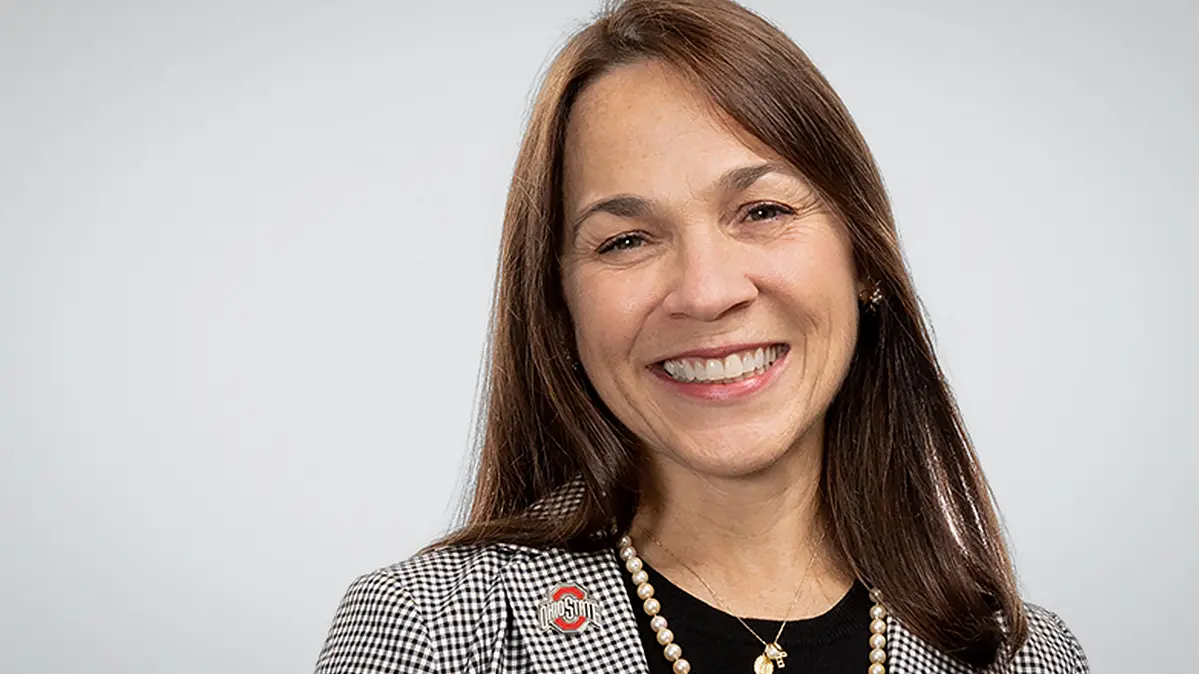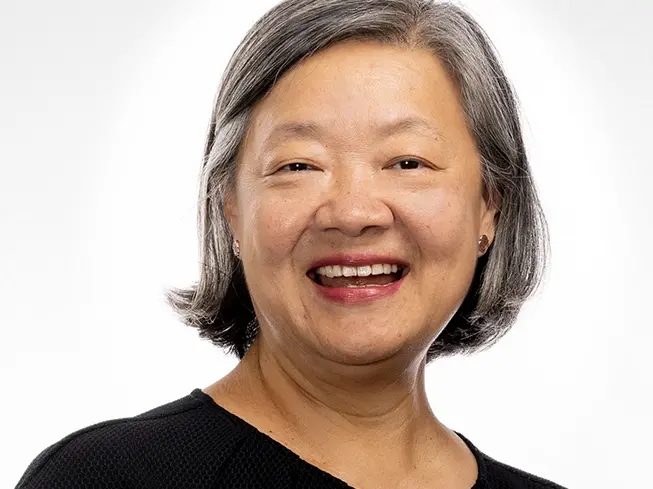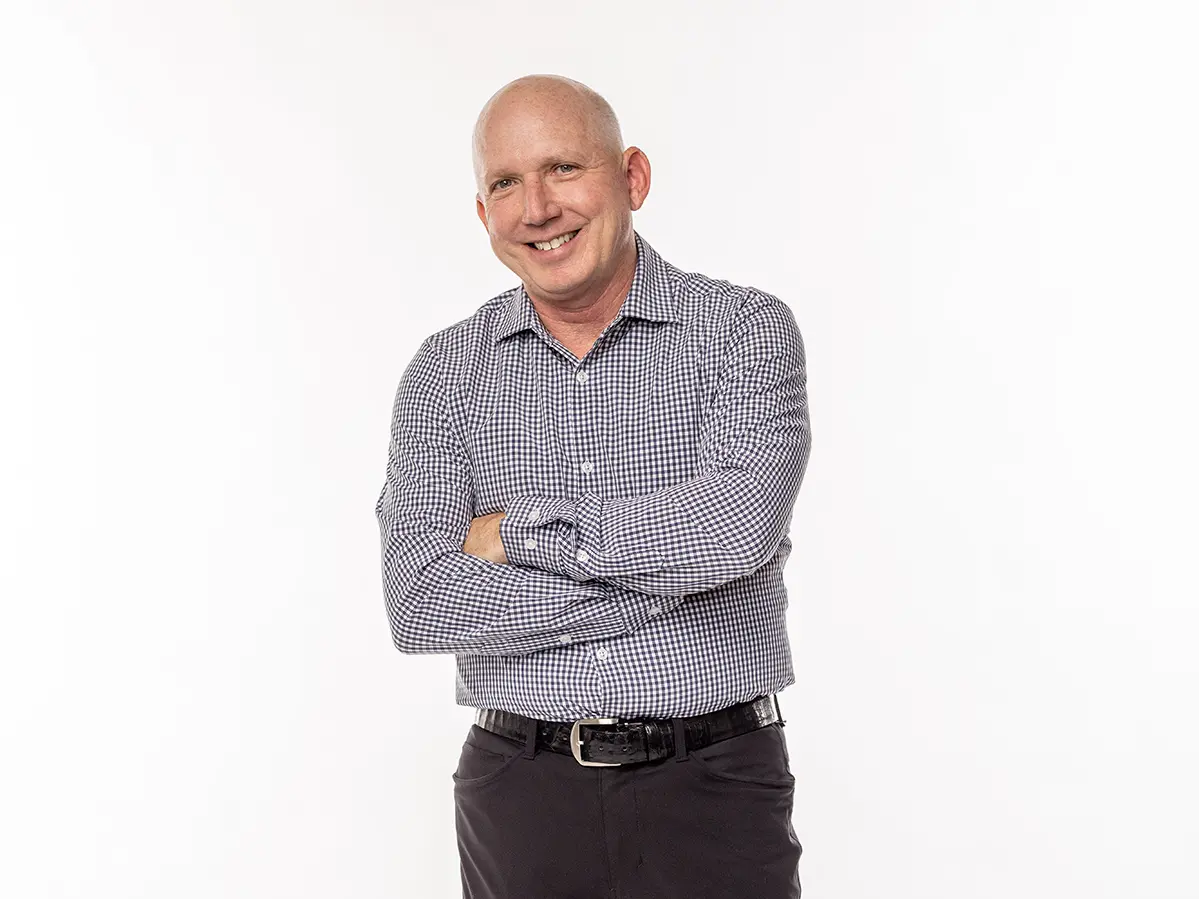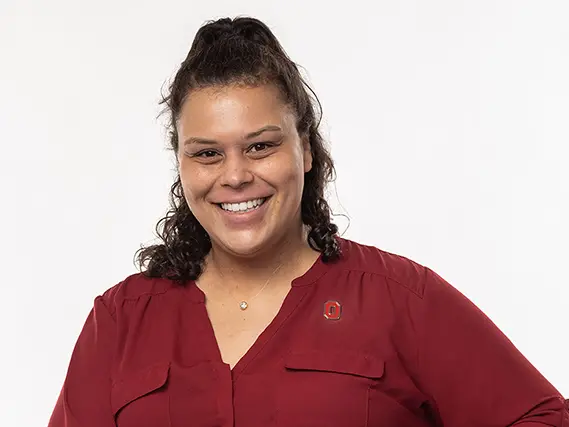She has 3 Ohio State degrees and 1 mission
Alumni board member Susan Bon is passionate about paying forward the help and encouragement that gave her the chance to earn her diplomas while raising her children.

Susan Bon is a member of the alumni association’s Board of Directors and interim associate dean for research and faculty affairs at the University of South Carolina. (Photo by Jodi Miller)
Susan Bon ’92 JD, ’94 MA, ’96 PHD has worked in higher education for 25 years, and her fire for it has never diminished. As interim associate dean for research and faculty affairs at the University of South Carolina, she draws on her passion for helping others achieve their goals.
“In law school, I got a spark for nonprofits,” Bon says. “It entered me into the educational, service-oriented leadership realm. Since schools are the biggest employers in many communities, I discovered that I could use my law degree — and focus on personnel, human resources and labor relations — to help them do their good work.”
Her career has taken her to various universities, but wherever she goes, Bon’s love for Ohio State burns bright. She offers this advice to fellow alumni: “Commit yourself to reading stories from our alma mater. Learn how people there are making a difference in ways like addressing homelessness and hunger. You are going to get reignited.”
-
What put you on the path to higher education?
Both my third grade teacher and a guidance counselor through junior high and high school — we joked that she had to move with me — were lifelong advocates for my educational endeavors. Later, my grandmother went back to school and earned bachelor’s and master’s degrees in social work and was a great role model.
My parents didn’t go to college and weren’t able to support me, but I discovered that persistence pays off. I wrote papers and competed for scholarship support and received Pell Grants to attend the University of Toledo, where I earned my bachelor’s degree. If I graduated without debt, I knew that I could afford law school.
-
What kept you motivated to pursue your PhD?
When I finished my law degree, I was recruited right away into the PhD program as a research assistant — which would cover tuition — because I had been doing legal research for some of my professors, who were amazingly supportive. I had my daughter during law school, and around the time I was working on my dissertation, my son was born. He was a high-risk baby. My professors, and even the department chair and dean, made sure I had time to help my children thrive and take care of myself.
Seeing how so many stepped in to assist made me double down on my commitment to helping others. Pursuing my doctoral degree was a way to upscale my work: Instead of helping one person at a time, client by client as a lawyer, I could expand my impact by teaching.
-
How do you encourage your students?
While providing a net of support, I push excellence. One of my very first doctoral students said, “My kids laughed at what you did to my paper, but at least you didn’t use red.” I always grade papers with green ink. That student was a parent and already a principal — and 15 years older than I was, as were most of my students at the time.
I remind them that it is all going to work out. At the end of my first year of law school, I ran out of money. I lived out of my car for a few weeks. Eventually, things worked out and I pursued my law school dreams.
-
What accomplishments make you most proud?
Becoming a full professor. When I started in my first higher education position, at Penn State, I was the only female in my program. With my background, it felt like quite the accomplishment. It enables me to concentrate on supporting others in reaching their goals, which I am especially focused on now as interim associate dean.
Recently, we were awarded a $1.3 million grant that I cowrote on law, policy and advocacy on behalf of special education. My 13 “wrapped with love” students are funded through this grant and earning their PhDs for free, as I did.
-
What has inspired you to advance diversity, equity and inclusion?
My passion for law connected to education and serving a population of students, much like myself, who could be disadvantaged in a general system, one that forgets those in extreme poverty, minoritized groups or with specific learning needs.
I have some privileges as a white female, and I want to implement change by taking action. Chairing our board’s diversity, equity and inclusion committee, I led an audit. When you do an audit, you don’t only identify problems; you find solutions.
While working with teachers and principals, teaching them how case law and statutes practically apply in our schools, they recognized the need to also learn more about special education. So I trained myself. I became a disability law specialist and created classes to prepare teachers and principals.


